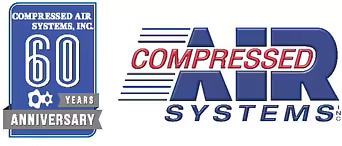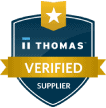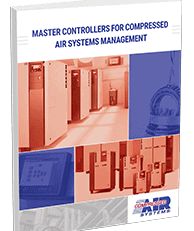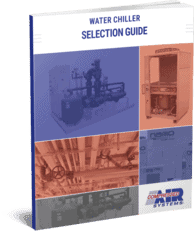Founded in 1963, Compressed Air Systems, Inc. delivers innovative air compressor solutions. We carry a range of air compressors, blowers, vacuum systems, and related accessories and components. From our Florida facility, we offer installations, rentals, and 24/7 customer service. We provide rapid diagnoses and repairs as well as turnkey solutions to meet your exact air compressor needs.
Compressed Air Systems carries various types of air compressors with different classifications and specifications for every application. Knowing the different types of compressors and the terms used to describe and measure their capabilities will help you determine a suitable compressor for your facility.
What Is an Air Compressor?
An air compressor is a powerful and essential component in many applications, and it pays to invest in the best possible unit you can budget for your application. The air compressor’s primary function is to compress low-pressure gas, vapor, or atmospheric air into a higher pressure. The compressed air is stored in a container or vessel and dispensed as needed. Various industrial and commercial applications rely on air compressors of different types.
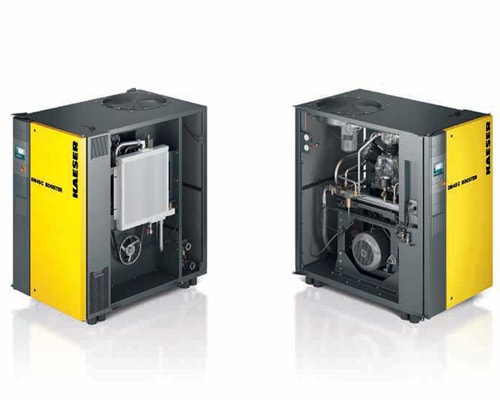
Types of Air Compressors
The following are the four most popular air compressor types:
Classification of Air Compressors
Air compressors are classified by pressure range, flow rate or capacity, design, and operation principles.
Air compressors classified by pressure ranges include:
- Low-Pressure Air Compressors: under 145 PSI (or 10 bar)
- Medium-Pressure Air Compressors: between 145 and 1,160 PSI (or 10 to 80 bar)
- High-Pressure Air Compressors: between 1,160 and 15,000 PSI (80 and 1,000 bar)
- Hyper-Pressure and Very High-Pressure Air Compressors: over 15,000 PSI (1,000 bar)
Compressors are also classified by capacity and volume flow rate:
- Low-Capacity Air Compressors: under 0.15 m3/s (or 318 CFM)
- Medium-Capacity Air Compressors: between 0.15 to 5 m3/s (or 318 to 10,594 CFM)
- High-Capacity Air Compressors: over 5 m 3/s (or 10,594 CFM)
Air compressors are also categorized based on their operating principle and design, such as:
- Dynamic Compressors
- Positive Displacement Compressors
Air Compressor Specifications
When selecting an air compressor, you’ll often see these common terms. Understanding each one is critical to selecting the unit that meets your industry and application needs.
Horsepower (HP) and Pounds Per Square Inch (PSI)
HP is the power produced by the motor. An air compressor with a higher HP can create more PSI of air pressure. While single-stage compressors typically generate up to 125 PSI, air compressors with higher PSI ratings can produce larger volumes of compressed air for extended performance in applications like air tools. When the tank reaches its maximum air pressure, the pressure switch turns off in the compressor, completing the duty cycle.

Cubic Feet Per Minute (CFM)
The air volume a compressor can pressurize to a certain PSI is measurable in CFM. Air compressors with lower PSI outputs typically have higher CFM ratings. A CFM above your requirements is essential when using an air compressor for air tools. A CFM 50% higher than the tool requires is considered a safe minimum in the industry.

Average CFM
Average CFM is the rating for air tools used intermittently, based on a 25% duty cycle. Average CFM can help you find a compressor for intermittently used tools, but buyers will require additional calculations to find a compressor for tools intended for continuous operation. Since average CFM is 25% of the duty cycle, you can calculate the full duty cycle by multiplying the rating by four.
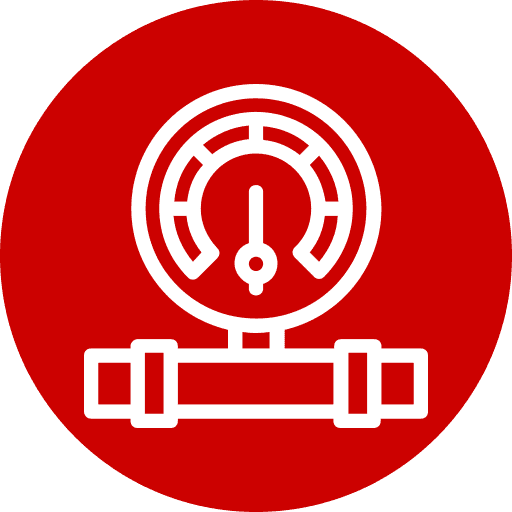
Actual CFM (ACFM)
Under standard operating conditions, the volume of air compressed per minute is known as ACFM by compressor manufacturers. The calculation incorporates temperature, speed, and pressures as part of the rated operating conditions.
Tank Size
Manufacturers typically measure storage tank size or volume in gallons. A small tank may hold about four to six gallons, while a large tank can store significantly more compressed air. The Compressed Air & Gas Institute states that the receiver tank should be sized for 3-5 gallons per 1 CFM.
Air Compressor Solutions From Compressed Air Systems
Applications that depend on compressed air, such as air-powered tools, require air compressors of different power, capacity, and design specifications to ensure optimal performance. While there are numerous types of air compressors, there are four most prevalent in industrial and commercial settings. They come in several classifications and have various specifications to suit every application.
Compressed Air Systems carries a range of air compressors, including rotary screw, high-pressure, oil-free, reciprocating pump, and specialty compressors. We have over six decades of experience serving various industries, including aerospace, food and beverage, medical, pharmaceutical, and electronics. Browse our catalog of air compressor solutions or request a quote for a specific solution. You can also call a specialist from our team at 813-626-8177 to discuss your air compressor needs.





